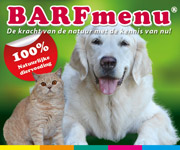The first solid food that wolf pups eat is regurgitated meat, which
is introduced at about three weeks. As they get older, this is
supplemented by fresh meat and bones that the other family members
carry to the den. At eight weeks, the pups are moved from the den to
a rendezvous site, where they wait while the older wolves hunt.
Eventually, at around four to five months, they begin following the
adults from the rendezvous site and feed on prey where it is killed.
Preferred cuts
What parts of their prey do wolves typically consume, and in what
order?
That depends, said Dr. Mech. They'll eat almost anything, but
their preference is for fresh rather than frozen meat and for
internal organs before anything else. The first choice goes to the
wolf in charge of the kill, which is almost always the breeding male
or his mate. They are the largest and most experienced hunters. They
will typically rip the abdomen open to reach the liver and other
organs.
Despite what many raw feeders claim, Dr. Mech said the wolves he
has observed do not eat the digestive tract contents of their prey.
They will remove the guts and shake them a few times to get rid of
whatever they contain, and they'll eat the rumen from around the
contents. This isn't to say that they won't swallow some of it.
They're not washing it out; they're just trying to remove as much of
the predigested greens and other stomach contents as possible.
In contrast, the organs themselvesthe liver, heart, and guts
these are prized, said Dr. Mech. So is fat, which is hard to come by
in the wild. Wolves usually catch the weakest, least healthy
animals. We have measured the fat content of Yellowstone elk killed
by wolves, and it's low. My best guess for wolves in general is that
less than five percent of their diet is fat, said Dr. Mech.
If they're really hungry, the wolves will eat everything organs,
bones, skin, fur, whatever's there as quickly as possible. If
they're generally well fed, they'll eat the internal organs and
choice meats first, then rest and come back later for more. They
won't eat antlers, very large bones, or the tooth rows of adult
prey.
As far as bones are concerned, Dr. Mech said, Wolves eat all of the
other bones, everything they can crack open. Some wolves succeed in
breaking the skull to eat the brains. Skull bones are hard, though,
and this is where many wolves injure their teeth. If the prey is
small, like a mouse or bird, the wolf may swallow it whole.
A pack of 10 to 15 wolves makes short work of its prey, even animals
as large as moose, said Dr. Mech. They work from the inside out,
then after sating themselves rest a few hours and eat again. The
next day, they eat the remaining meat, which in winter is frozen, as
well as the hide, and there is always recreational bone chewing. By
the third day, they pull the skeleton apart. They may leave the
lower legs and hooves or cache them. If they leave the leftovers,
they may return for them, or a scavenging lone wolf may find them.
In spring and fall, other animals such as beaver may be available,
or the wolves may find birds eggs. Wolves would eat eggs year
round if they could find them,said Dr. Mech. but they're a
seasonal item, like berries. Wolves do eat fruits and nuts and grass
on occasion, but meat is their primary food. Their diet is almost
all protein with some fat. I estimate that vegetation makes up less
than one percent of the food of wolves worldwide. They simply didn't
evolve to eat vegetables.
A lot of people assume that wolves eat large quantities of hair and
fur, he continued. Well, they do, but if you're judging by a
wolf's fecal matter, the percentage of hair, hide, and fur seems
larger than it really is. That's because wolves digest meat first,
and they do an excellent job of it. The small amount of fecal matter
produced by meat shoots out of them as a liquid. It's not
technically diarrhea, but it's a very loose stool, and thats
healthy and normal. Then there are longer-lasting stools that are
solid and that contain hair, hide, teeth, and bone residue that
looks white and chalky.
Different life-stage diets?
When pregnant and nursing, the female wolf eats the same foods as
usual, just more of them. In most cases, she's out hunting and
traveling with the pack until a couple of days before whelping,
said Dr. Mech. Most have litters of five to six pups, with larger
litters in more temperate climates where game is more abundant, and
smaller litters in extreme conditions or when game is scarce.
Dr. Mech said that wolf pups get their permanent teeth at around six
months, which is when they stop receiving preferential treatment.
Physically mature at 12 to 14 months, most wolves begin reproducing
at age two to four years.
In Minnesota, where Dr. Mech has kept population statistics since
1968, about one wolf in every 500 lives to be 10 years old. Once a
wolf reaches age six or seven, it's a little past its prime, he
said. That would be comparable to a 40-year-old human. An elderly
wolf is 10, 11, or 12 years old. Most wolves in the wild live around
five years, but captive wolves can live to be 17.
It's not their diet that shortens the lives of most wild wolves;
there are many causes of wolf mortality, says Dr. Mech. Wolves kill
each other in territorial disputes. If theres too much snow on the
ground, prey animals cant find the food they need, so their
population goes down, and when there isn't sufficient prey, the
wolves starve. As mentioned earlier, wolves are also killed or
injured by their prey, and an injured wolf is at a serious
disadvantage. By far the greatest risk to wolves, though, is human
exploitation.
When asked about tooth and gum health, Dr. Mech said that wolves,
despite the tooth wear that comes with a lifetime of bone chewing,
have strong, healthy teeth with no decay, abscesses, or gum disease
that he has seen, and no other problems except for occasional
injuries that break teeth. Most older wolves have a broken tooth,
but it doesn't slow them down.
According to Dr. Mech, wolves may carry internal parasites, but
those parasites seldom have a detrimental effect until the wolf
becomes elderly or is weakened by malnutrition. The presence of
internal parasites is not an accurate health indicator, he said.
The key to a healthy wolf population, Dr. Mech concluded, is
abundant prey. When theres enough food, wolves reproduce, raise
healthy pups, maintain a strong pack, and enjoy the social benefits
of a large, active family. In return, they strengthen herds of
animals by culling the weak, injured, or diseased, and play an
important role in our wilderness ecology.
Some describe wild wolves as sickly creatures, infested with
parasites and leading a miserable existence. Because of starvation
or the stresses of human intervention, some wolves may fit that
description, but to imply that all wolves in the wild are frail and
diseased is the grossest misrepresentation. When wolves live in the
conditions in which they evolved, on large tracts of land with large
prey to hunt, these ancestors of the modern dog are among the
earth's fittest, most powerful, most intelligent, vital, healthy
animals. Their strong social bonds and rich family life have
fascinated humans for millennia. Their howls speak to us, though in
a language few can fully understand.
Dr. David Mech's lifetime of wolf research offers an extraordinary
glimpse into the lives of these elusive, misunderstood, and very
special animals.
Also With This Article
"What You Can Do"
"Should the Diet of Wild Wolves Inform Our Dogs Diets?"
"Wolf Conservation Resources"







